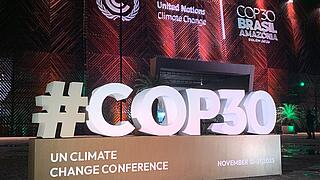European emissions trading for buildings and transport: targeted support for vulnerable households

Einnahmen aus dem europäischen Emissionshandel bewusst verwenden
© plainpicture / Astrakan Images
In 2027, a second European emissions trading system (ETS 2) will be introduced specifically for the buildings and transport sectors and small energy businesses. A new study by the Oeko-Institut and Forum Ökologisch-Soziale Marktwirtschaft (FÖS) looks at how this might affect Germany, how the revenues will be used and how vulnerable groups can best be supported. The existing national emissions trading system will transition to the new EU ETS 2.
Targeted support programmes for climate action and inclusion
A share of the revenues from the ETS 2 will be redistributed to the Member States, with a fixed proportion going to a Social Climate Fund (SCF). Strict criteria will apply to the use of the revenues: the funds should be spent primarily on climate action and on supporting the most affected vulnerable groups. Funds held in the SCF are subject to clearer limits compared with the remaining revenues. A definition of “vulnerable groups” in the context of the Social Climate Fund has yet to be determined. The study proposes combining various indicators in order to take the diverse causes of energy and transport poverty into account. The primary objective of the Social Climate Fund, via targeted funding programmes, is to support low-carbon investment measures that benefit these groups, thereby reducing their reliance on fossil fuels. At present, Germany has very few measures in place that focus on vulnerable groups. Examples of actions that would ease the burden on these groups and have a positive environmental impact are low-cost investment measures in the buildings sector such as replacement of windows, expansion of energy counselling with direct energy-saving support, and a social ticket for Germany in the transport sector. Interventions such as these would fulfil the purpose of the Social Climate Fund.

It is important to support vulnerable households’ exit from fossil fuels. This also protects them from price rises, increases their resilience and facilitates their inclusion in climate action,” explains Dr Katja Schumacher, Deputy Head of the Energy and Climate Division at the Oeko-Institut. “In every case, we recommend spending not only the limited resources from the Social Climate Fund but also a good proportion of the remaining revenue on these measures.
Facilitating the exit from fossil fuels
The Social Climate Fund also allows the payment of temporary direct income support for vulnerable groups. However, the disbursement of a per-capita, non-income-dependent climate allowance (Klimageld) from the SCF is not possible. Further studies are required to determine whether this could be provided from the national share of ETS 2 revenue, as it is still uncertain how the European legal provisions will be interpreted. “What’s more, the climate allowance would not help vulnerable households to reduce their emissions. That’s why targeted investment measures are so important,” Dr Schumacher continues.

If the revenues from carbon pricing are used for the disbursement of a non-income-dependent climate allowance, the positive distributional effects could well be reversed within a few years. This would happen if high-income households invest in heat pumps and electric vehicles, thus eliminating their carbon costs going forward, while low-income households continue to heat their homes with oil and gas or drive petrol cars. We show this in the study as well.
Introducing a minimum carbon price
The study further advocates for the introduction of a national minimum carbon price in order to provide a fixed point of reference for the public and businesses. It would also be sensible to raise the national carbon price before the introduction of EU ETS 2, thereby avoiding sharp price hikes. The resources held in the Social Climate Fund should not be limited to a specific volume of funds but should increase as the price of carbon rises. For Germany, the opt-in option for ETS 2 is recommended so that all sectors previously covered by national emissions trading transition to the European system. In this way, the positive effects of carbon pricing in mitigating climate change can be preserved.
The study was produced on behalf of Climate Alliance Germany.
CO2-Preis in Deutschland. Umsetzung des ETS II und des Klima-Sozialfonds in Deutschland [Carbon pricing in Germany: Implementing the ETS 2 and Social Climate Fund in Germany]: Study by the Oeko-Institut





